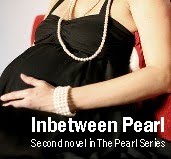Today's post is by a unique guest, author and teacher Carolyn J. Rose.
Rose shares her thoughts on growing up in the Catskill Mountains and how those memories can create a strong setting. Rose earned an honored position on the list of Celebrities Who've met ME! when I took both her Novel Writing Boot Camp classes. From that experience blossomed a loyal critique group that has produced two Pacific Northwest Writers Association winners--attesting to her skill as a writing coach.
Carolyn' J. Rose is the author of several books, most recently Hemlock Lake available in hardback or Kindle. Here's Carolyn . . .
In Washington, where I live now, the term I hear is “forest.” But when I grew up in the Catskill Mountains, the leafy realm that began at a dozen yards from our house was always called “the woods.
Trees dug in their toes at the edge of a scabby lawn sprouting through

rocky soil scraped into a semblance of level by a tractor blade. This was no spongy, springy, emerald green lawn. This was a pale lawn of ruggedly individualistic blades of grass, roots corkscrewed in among pebbles and stones, clinging to scant, glacier-scoured soil.
Each spring we reclaimed the edges of it from an advancing army of sumac, oak, and birch, from hemlock, pine, and cedar. We hacked away at brush and vines, lugging what we dropped to piles that would be set alight in the dark of winter.
The summer woods seemed impenetrable, the winter woods empty, bleak, and barren.

As a child, one of the biggest treats was a Sunday afternoon walk with my father. It was a pursuit of adventure, of wildness—it was piquant sauce for the predictability of the Sunday dinner of ham or roast, that Sunday sense of waiting for things to begin again with Monday’s dawn.
My father would identify tracks and droppings—deer, bear, raccoon, skunk. He’d name trees and point out nests aloft.
I’d try to walk silently, but winter winds had scattered twigs and branches that snapped beneath my shoes and slabs of shale slid underfoot when we climbed the ridges.
I became fearful when we left the landmarks I knew and could identify, worried we wouldn’t find our way back to the dinner simmering in that cast-iron kettle. But I was always confident that if I stayed by his side, we would return safely. After all, these were the woods he had roamed in childhood and if he’d found his way home as a child, he could surely do the same as an adult.
And this was no dense green-black forest of Douglas fir—no wall of forest, shadows, and night. This was a woods where sun spangled through the leaves of the hardwoods. This was a woods of saplings and bright autumn tints, of long, stark shadows cast by a weak winter sun. This was a woods where stone walls intersected like lines of longitude and latitude. Even humped under winter’s snow they provided a means of navigation.
Looking back, I realize how “tame” and “civilized” those woods were. And yet, they were mysterious, filled with unanswered questions: Who had left that sickle blade hanging in the crotch of a sapling and when had the tree grown around it? Who had left an ax leaning against a spur of stone wall and when had the handle rotted away? Whose initials were those scraped into lichen-scarred stone, carved into the puckered bark of a tree? Where had these people gone and when and why?
As I wrote Hemlock Lake, I often imagined myself back in the Catskill Mountains, back in those woods and I created mysteries of my own—a man who roamed the ridges seeking his lost self, ghosts, a man bent on vengeance, a killer. Hemlock Lake deals with universal themes—betrayal, revenge, love, loss, and redemption—but my memories of those woods make the story unique.
Editor: Thank you Carolyn for continuing to share yourself with your writing students and the reading community.
Listen to an interview of Carolyn J. Rose as she speaks about writing
Hemlock Lake on
The Author Show.
Purchase
Hemlock Lake on Kindle
here.
Read an interview of Carolyn J. Rose. It can be read in three parts:
Carolyn J. Rose also founded the
Vancouver Writers Mixer with Mel Sanders of Cover to Cover Books.

Top


































![Validate my RSS feed [Valid RSS]](https://blogger.googleusercontent.com/img/b/R29vZ2xl/AVvXsEiAIPReZorWncm8rqb2sSJRToPKpOGvLVLIgPtfxjxu0dWp8vAiyz8tbz8M34zpnRUMU7gt-vjPvEGsTfn5AfL4_KnzLj0up6PTs7yQWt_ClPyj8oYhoVbhZdWtah0mX6VY_6S5GRembsg/)